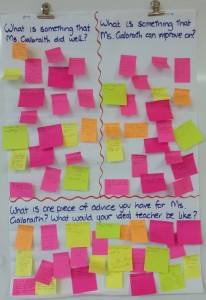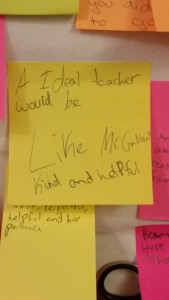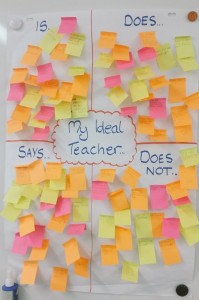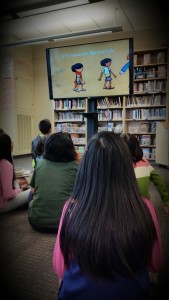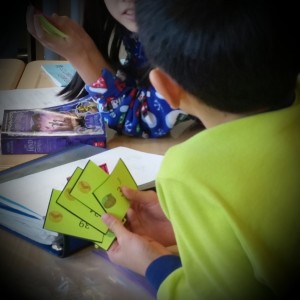During my practicum in Grade Five, I have been fortunate enough to see how students transition through a full Unit of Inquiry. Through the transdisciplinary theme of Who We Are, our class is focusing on the central idea that “Learning about our body systems helps people make informed choices”. As with anyone that is new to IB, the concepts surrounding the Programme of Inquiry and how this can be authentically implemented in conjunction with BC Curriculum, can be a bit daunting at first. How do we genuinely incorporate the Learner Profile into our everyday language? How do we take an interdisciplinary approach to understanding the Central Idea? Where do we begin with taking real action? We can cover all the theory we like in our classes, but until we get into the schools and start seeing it in practice, that is when we will really get to see the IB “magic”.
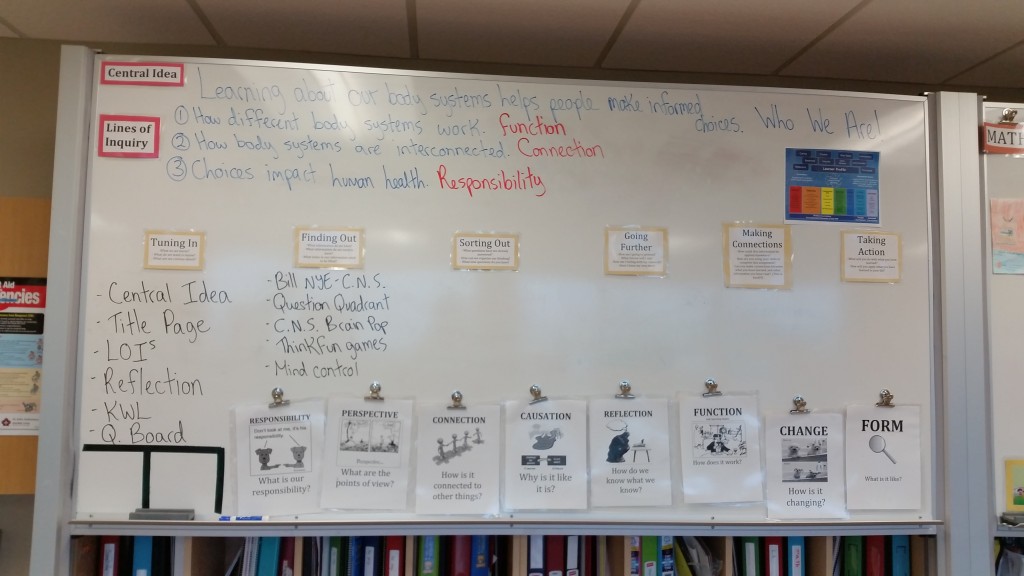
Who We Are Unit of Inquiry
My School Advisor breaks each unit down into six weeks, with each week roughly covering the following themes: Tuning In, Finding Out, Sorting Out, Going Further, Making Connections, and Taking Action. The picture above was taken during the second week of the unit; we are now in week five, and having not been present for week 3 and 4, the advancement in their level of understanding and the depth of the connections they are now making is remarkable. On enquiring, I found that this was the Kath Murdoch model of inquiry, which is extremely similar to the Spiral Model of Inquiry we have been learning about in our ‘bible’, Spirals of Inquiry, by the amazing Jody Halbert and Linda Kaser (who we were very fortunate to attend a keynote speech by this past week).
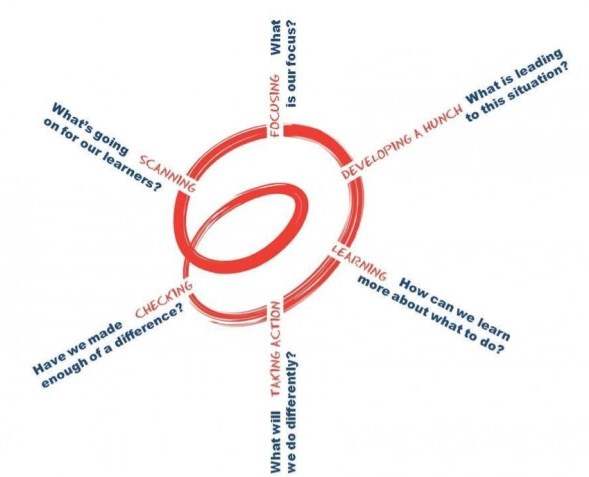
Spiral Model of Inquiry (Halbert & Kaser, 2013)
When I think back to my own education as a child, as well as throughout my undergraduate degree, there is definitely a stark difference between then and the direction that education is now heading. I was a student to a lot of transmission-style teaching… and let’s be honest, there’s not much of my learning in elementary and high school that I can recall. But the great thing about this, is that we as educators and administrators are making progress. And with the upcoming transition with the new BC Curriculum focusing more on competencies (the ‘doing’), this is an exciting time for teacher candidates. We are going to be part of the change, and what’s more, with our understanding of inquiry through the international baccalaureate program, we are going to be, hopefully, ahead of the game.
We are all responsible for our own learning. The teacher’s responsibility is to create educational environments that permit students to assume the responsibility that is rightfully and naturally theirs.” (Brooks & Brooks, 1999).
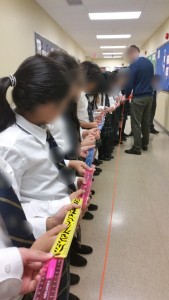
Class inquiry in action
So as a new inquiry teacher, how do we go about inciting student ownership over their learning? This is something that I will be working to uncover over the remainder of my BEd, as well as developing my skill set over the rest of my career. To get started however, on her website (link below) Kath Murdoch provides 10 practices of the effective inquiry teacher:
- Challenge more students to think more deeply more of the time
- Teach students about thinking: help build their critical, creative and reflective thinking toolkit, as well as asking them to share their thinking processes with others
- Provoke curiosity and wonderment: celebrate questions and teach how to ask good questions
- Invite student voices into the learning process: have them construct intentions and success criteria
- Help students make connections: assist them to see how their thinking grows and changes
- Teach the skills and process used by researchers, so they have a variety of methodologies and feel confident as researchers
- Ensure that students have the bigger picture: context and purpose for their learning
- Let kids in on the secret: share learning intentions
- Focus on process as much as the content: invite students reflect and plan how they learns
- This is all in the context of having a genuine, trusting relationship with your students.
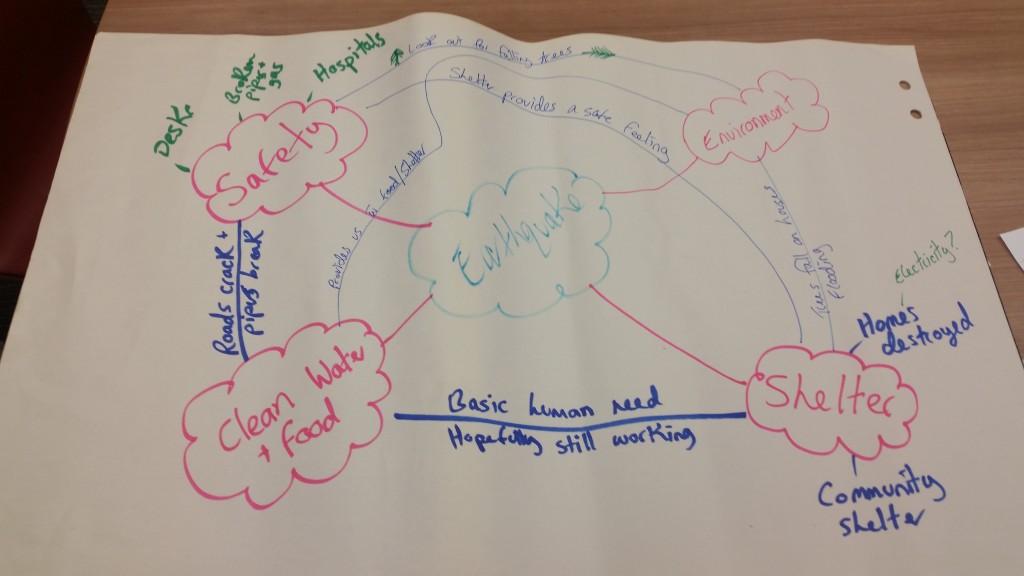
Mind Maps: brainstorming and making connections on real-world issues
So ask questions, investigate the unknown, discuss ideas, interpret information, and reflect regularly… this results in becoming an authentic lifelong learner, and if you can endorse this, your students will do too.
References
Brooks, J. and Brooks,M (1999) In search of understanding: the case for constructivist classrooms, Sage publications.
Halbert, J. & Kaser, L. (2013). Spirals of Inquiry for equity and quality. Vancouver, BC: BCPVPA
Kath Murdoch website: http://www.kathmurdoch.com.au/new-page-2-1/
